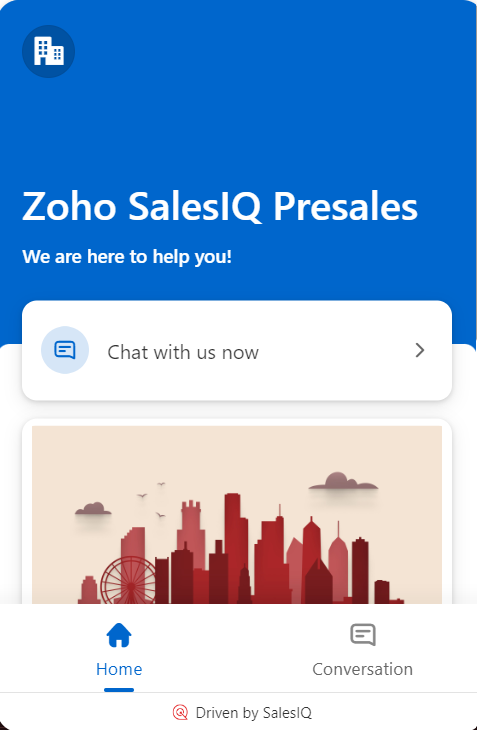Your sales team strives to give their full attention to every customer and lead. But as your business grows, keeping up with an increasing number of customers can become a challenge. This is where customer engagement platforms come in—helping businesses provide instant communication, streamline responses, and improve customer satisfaction.
In this blog, we’ll compare two key players that offer a customer engagement platform, Zoho SalesIQ and Intercom, discussing how these platforms improve response time, reduce manual workload, and deliver a seamless customer experience.
Pricing
Zoho has always outperformed competitors in pricing, and Zoho SalesIQ is no exception. While Intercom’s essential plan starts at $39 per month per user, it lacks many of features that SalesIQ offers in its basic plan for just $7 per month per user, a fraction of the cost.
Do you need more features than just the basic plan? For only $20 per user per month, SalesIQ’s enterprise package offers it all. Meanwhile, Intercom’s comparable plan costs a staggering $139 per user per month – almost 7x more.
And, for smaller businesses who may not be ready to make a commitment to a customer engagement platform, Zoho SalesIQ offers a free version with no strings attached.
Winner: Zoho SalesIQ
Features
For this comparison, let’s look at Zoho SalesIQ’s basic plan vs Intercom’s essential plan to see how their customer engagement platform solutions stack up.
The most noticeable feature of SalesIQ and Intercom is the chat functionality for your website. Out of the box, Intercom has an advantage here, with a chatbot that can answer any inquiry. On the other hand, SalesIQ’s chatbot relies on predefined prompts, unless you integrate it with ChatGPT.
Despite lacking in one feature, Zoho stands out as a well-rounded system that does it all. With a full fleet of applications, from CRM to Zoho Desk and more, your team can have all the tools they need without the added cost of managing multiple platforms. Plus, SalesIQ matches Intercom’s additional features like lead scoring, live tracking, multilingual support, and more, all at the basic and essential levels.
SalesIQ also pulls ahead of the competition with a few additional key features, the most notable being its available desktop application. According to discussions on Intercom’s own forums, many customer service agents prefer having a desktop application, similar to what they use for CRM or ticketing platforms. However, Intercom does not currently offer a desktop application and requires users to access the platform via browser. On the other hand, SalesIQ provides its own desktop application, even at the most basic plan.
Zoho’s extra features don’t stop there. SalesIQ offers users multilingual support with right-to-left text compatibility, an abusive content management system that blurs profanity (allowing your agent to choose whether they want to view it), and a click-to-call feature that allows sales reps to make direct calls with customers from its desktop or mobile application.
Intercom may have an edge over Zoho SalesIQ with its AI-supported chatbot, but when you consider the variety of features SalesIQ offers in comparison, it’s easy to recognize which customer engagement platform provides more value.
Winner: Zoho Sales IQ
Integration
When comparing integration within the basic Zoho SalesIQ plan vs. Intercom’s essential plan, Zoho clearly offers more. With Zoho’s basic plan, you can integrate a variety of chat platforms, including Facebook Messenger, WhatsApp, Instagram DM, Line, Telegram, WeChat, and more. With Intercom’s essential plan, you can only integrate WhatsApp. Not only that, SalesIQ also beats Intercom with CRM integrations, offering integration with all major CRM systems in the industry.
While Intercom’s more robust AI chat bot meets most needs, Zoho provides flexibility by offering both an out-of-the-box chatbot and the option to integrate AI.
When it comes to integrating CRM, ERP, ticket management systems, finance systems, and more, Zoho knocks it out of the park with seamless integration, all under the Zoho umbrella. Yes, Zoho can be integrated with other CRM systems like Hubspot and Salesforce, but it can also integrate with its own full suite of Zoho applications, from its CRM system to Zoho Desk, Zoho Books, and more.
Winner: Zoho Sales IQ
Look and Feel

Intercom provides a sleeker and modern look-and-feel in its chatbot compared to Zoho. With rounded edges and subtle gradients, the interface provides an aesthetic that makes interactions feel personal. The “Hello there. How can we help?” adds to the personal and engaging feel, while the layout provides a simple and intuitive design.

Zoho’s SalesIQ leads towards a cleaner, more professional look. With a lighter and business-focused theme, the interface clearly emphasizes functionality over aesthetic. Sharp lines, bold headers, and text that reads “Chat with us now.” are all elements of this professional design.
Winner: Tied
Chat Interface
When it comes to the interface, both applications offer user-friendly designs and clean interfaces with taskbars that make features like viewing KPIs or chatting with customers just a click away. However, Zoho SalesIQ does have an upper hand for customer service agents working long hours, offering a full dark mode that spans across the entire application. On the other hand, Intercom’s dark mode is limited to the messages section of its web application.
Winner: Zoho SalesIQ
Tracking
Customer tracking is one of the main purposes of softwares like Zoho SalesIQ or Intercom. With advanced KPIs and customer data, your team can know where customers are accessing your site from, their hotspots, their stage in the buying process, and other valuable metrics that allow your team members to step in and add value at the right moment.
![]()
While both platforms offer a range of tracking tools, SalesIQ takes the lead with one tracking feature Intercom doesn’t offer: session time tracking. Zoho tracks the amount of time each visitor spends on your website. This metric is displayed in an intuitive layout, with concentric circle rings representing time spent on the website, location of the visitors, and more. This visually clear and modern layout definitely puts Zoho ahead of Intercom in the customer tracking game.
Winner: Zoho Sales IQ
Which Customer Engagement Platform Should you Choose?
Both Zoho SalesIQ and Intercom are powerful tools that enable your sales team to focus their time on strategic customer inquiries, track user data, and interact instantly with website visitors. However, with SalesIQ offering more features and integrations than Intercom at a fraction of its cost, it stands out as the smarter option.
As a Zoho Authorized Partner, we help businesses implement and customize Zoho CRM to meet their unique needs. Get in touch with us to see how Zoho can transform your operations for long-term success.



